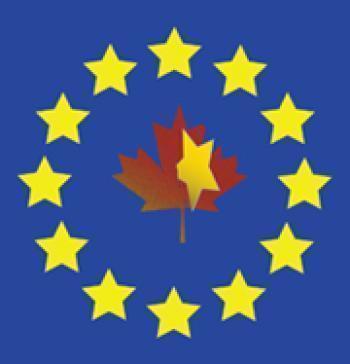It would appear that when it comes to the Canada-EU Comprehensive Economic and Trade Agreement (CETA), even things that aren’t secret need to be kept safely under wraps by the Harper government.
As CBC reported on May 27, Treasury Board President Tony Clement invoked the “confidence of cabinet” secrecy rules to avoid responding directly to inquiries by NDP MP Ryan Cleary asking for clarification about the $280 million in federal funds that is being paid to Newfoundland and Labrador.
The funds, part of a $400-million package that would see the remainder paid by the government of Newfoundland and Labrador, is to compensate the province for the impact of lifting minimum processing requirements for seafood in order to gain greater access for Canadian fish and seafood to European markets.
What’s most striking about Clement’s secrecy is that everyone already knows about the funding. Back in October, the government of Newfoundland and Labrador put out a press release about it, and in December, then-premier Dunderdale tabled in the legislature 80 pages of correspondence about the agreement.
As crazy as that all seems, when it comes to CETA, even non-secrets are secret. We still haven’t seen a single official page of the CETA agreement released by the federal government (and trust me, we’ve tried) so besides a flimsy summary tabled in Parliament last October when the so-called “agreement in principle” was reached, all we know about the deal has come from leaked copies of the negotiating texts. More than seven months after Harper pretended he had a deal, we still don’t have any real details about what’s holding things up. But, hey, it’s not like it’s Canada’s largest “free trade” deal since NAFTA or anything.
All this secrecy raises the question of exactly how much the Harper government (read: Canadian taxpayers) will ultimately be on the hook for to buy support from the provinces for CETA.
We know about the $280 million to Newfoundland and Labrador, which, somewhat predictably, has left P.E.I. wondering if its also going to get any help from Ottawa. Speaking of secrecy, despite the provinces ostensibly being involved in CETA negotiations throughout, P.E.I. Innovation Minister Allen Roach said of the compensation package, “None of us that were around the table were aware of this, and up until that point they had had very tight discussions, open, honest discussions and so when this was made, it caught everybody unaware.”
We also know that the government of Quebec is seeking federal compensation for the impacts of opening up Canada’s supply-managed dairy sector to an additional 18,500 tonnes of European cheese exports. As reported in the Canadian Press, “Small producers of Quebec cheese fear they could lose $450-million a year because of the European competition. The federal government has said it will offer compensation but neither the details nor the amount have been determined.” It’s an issue they have been pushed on in the House of Commons by the opposition, up to and including today.
Ontario has likewise asked for compensation to make up for the expected impacts of CETA in the province. Like Quebec, Ontario is looking for help for its dairy sector and has requested (reportedly with little success) for similar support for the impacts on its wine and spirits industry.
Then there’s the impact of the pharmaceutical patent term extension which, while not the worst-case scenario it may have been, will still mean a significant increase in pharmaceutical costs to the various provincial healthcare budgets. The latest analysis suggests an additional cost to the provinces of between $795 million and $1.645 billion annually.
And a report released by the Canadian Centre for Policy Alternatives on May 27 suggests that in order to get any benefit out of CETA’s very lopsided automotive deal, the federal government will have to “provide specific supports for automakers producing in Canada, to assist them in developing offshore market opportunities in general, and sales to the EU in particular.”
Of course, because of the extreme secrecy that has surrounded CETA negotiations from day one, there’s no way for Canadians to know for sure what compensation the provinces have asked for in order to lessen the impacts of CETA. And there’s no way to know what the federal government has already promised to buy provincial support for a deal that more than 50 municipalities across Canada either want to be left out of or want a bigger say in.
But it’s looking like a significant price tag to get a deal that independent analysis has shown will mean far fewer gains than the early pie-in-the-sky promises, and likely even loses, for the Canadian economy. Perhaps that’s why Canadians are lukewarm on CETA, even while they support more trade with Europe. As former Council of Canadians trade campaigner Stuart Trew put it, because of CETA, “taxpayers like you and me will be padding the bottom line of already-profitable multinational corporations.”
And none of that includes what will likely be the most costly part of CETA if it’s implemented: the widespread corporate rights it provides through its investment and investor-state dispute settlement (ISDS) chapters, which could see the federal government and provinces facing costly challenges and penalties for years to come. Canada has already paid more than $160 million in awards or settlements to U.S. companies because of NAFTA Chapter 11 lawsuits. Globally, investment panels have awarded more than $3.5 billion to U.S. corporations alone, and as of 2013 there have been at least 568 investor-state challenges to government policies in 98 countries.
So, just how much will CETA cost us in the end? It’s a secret.



